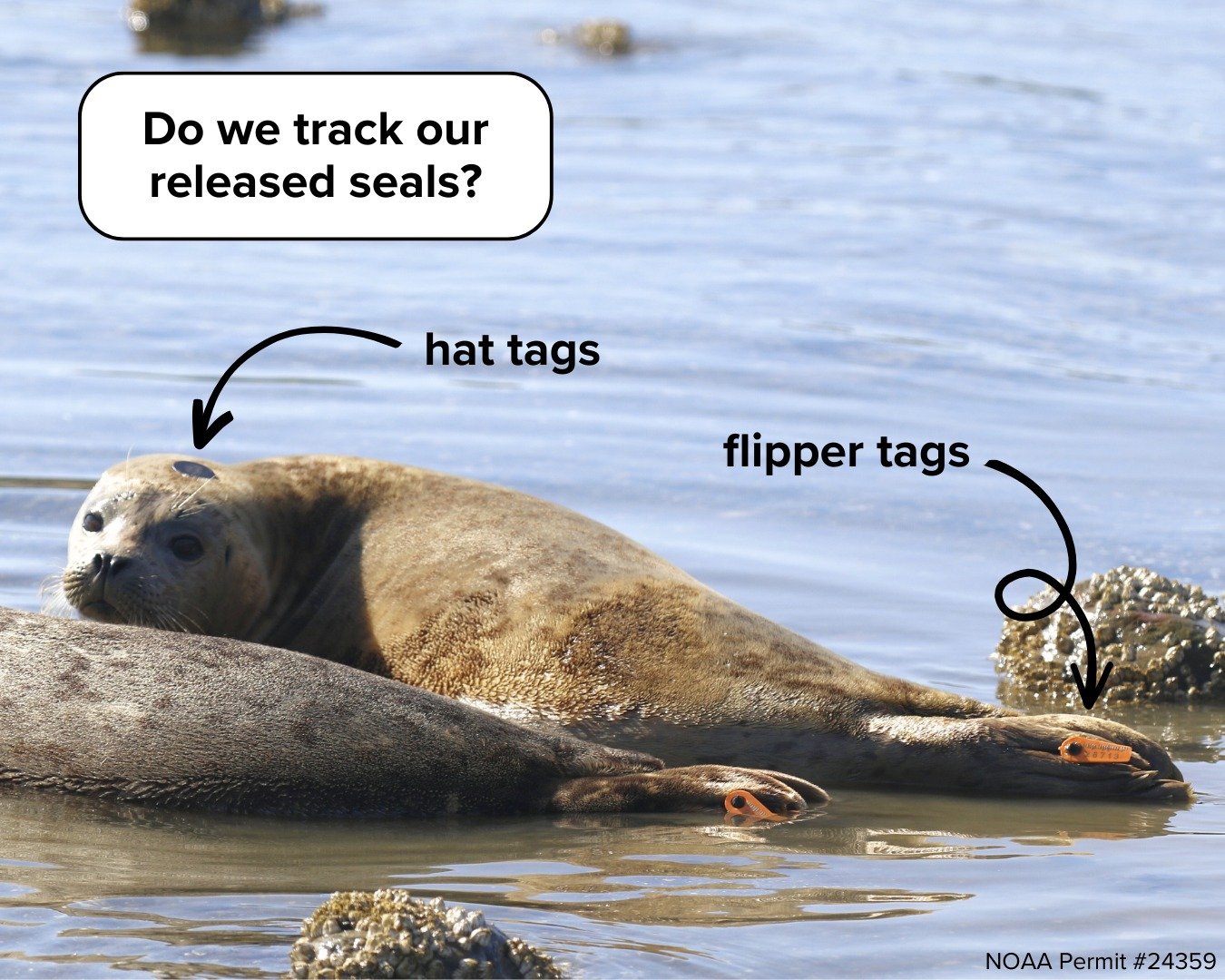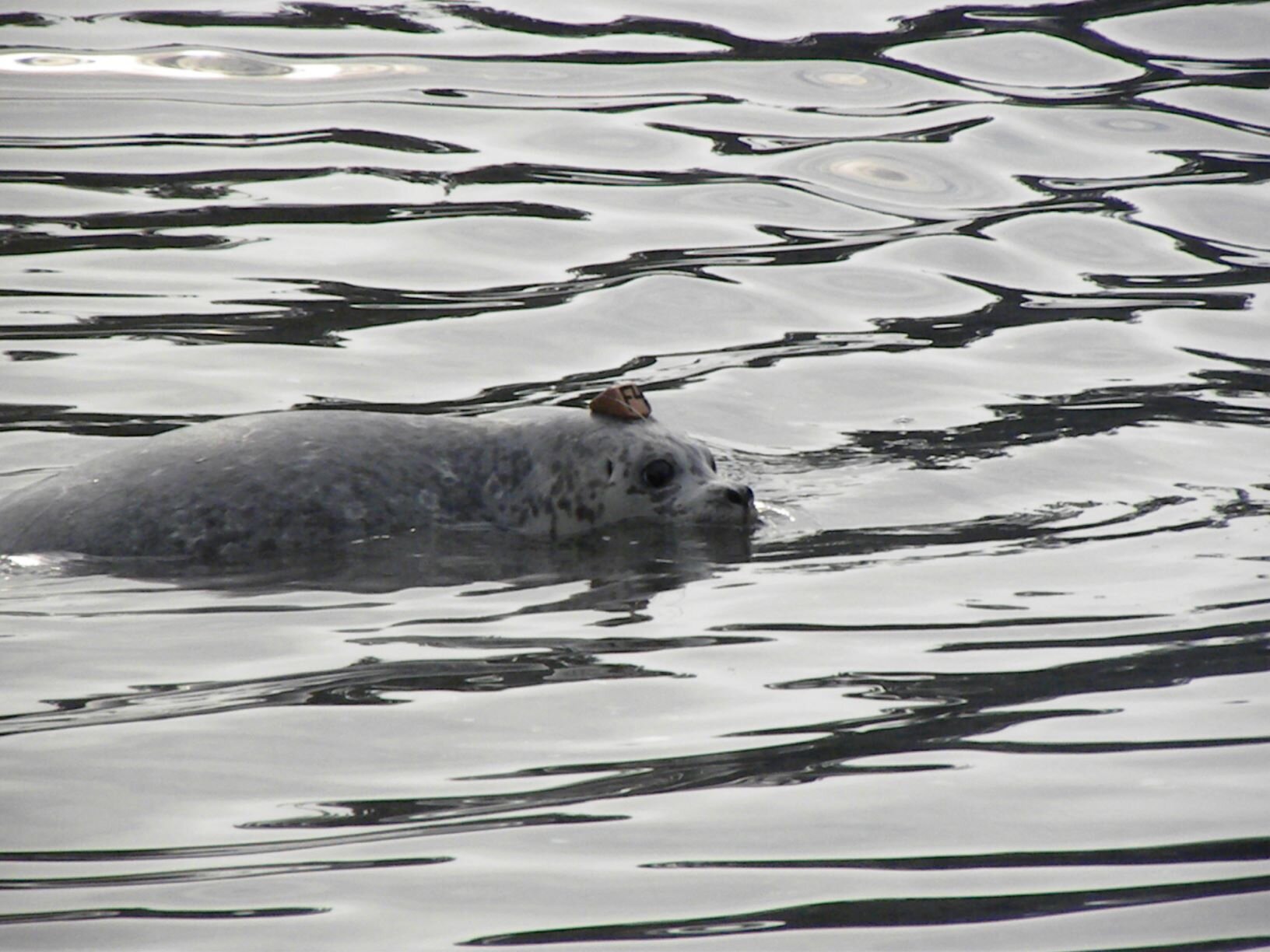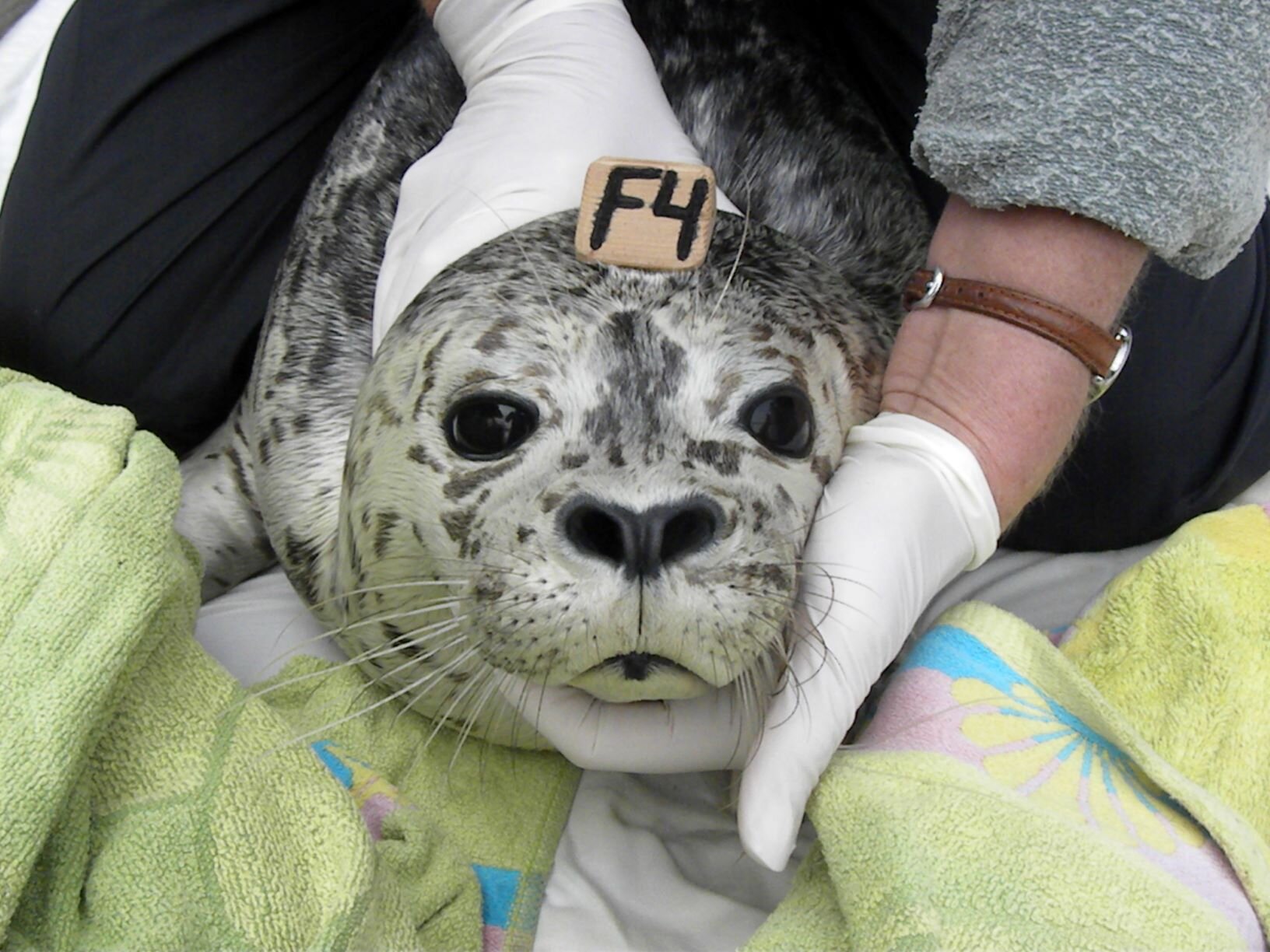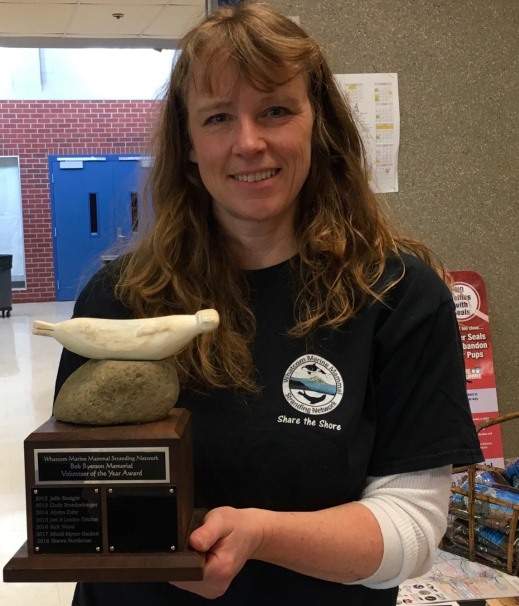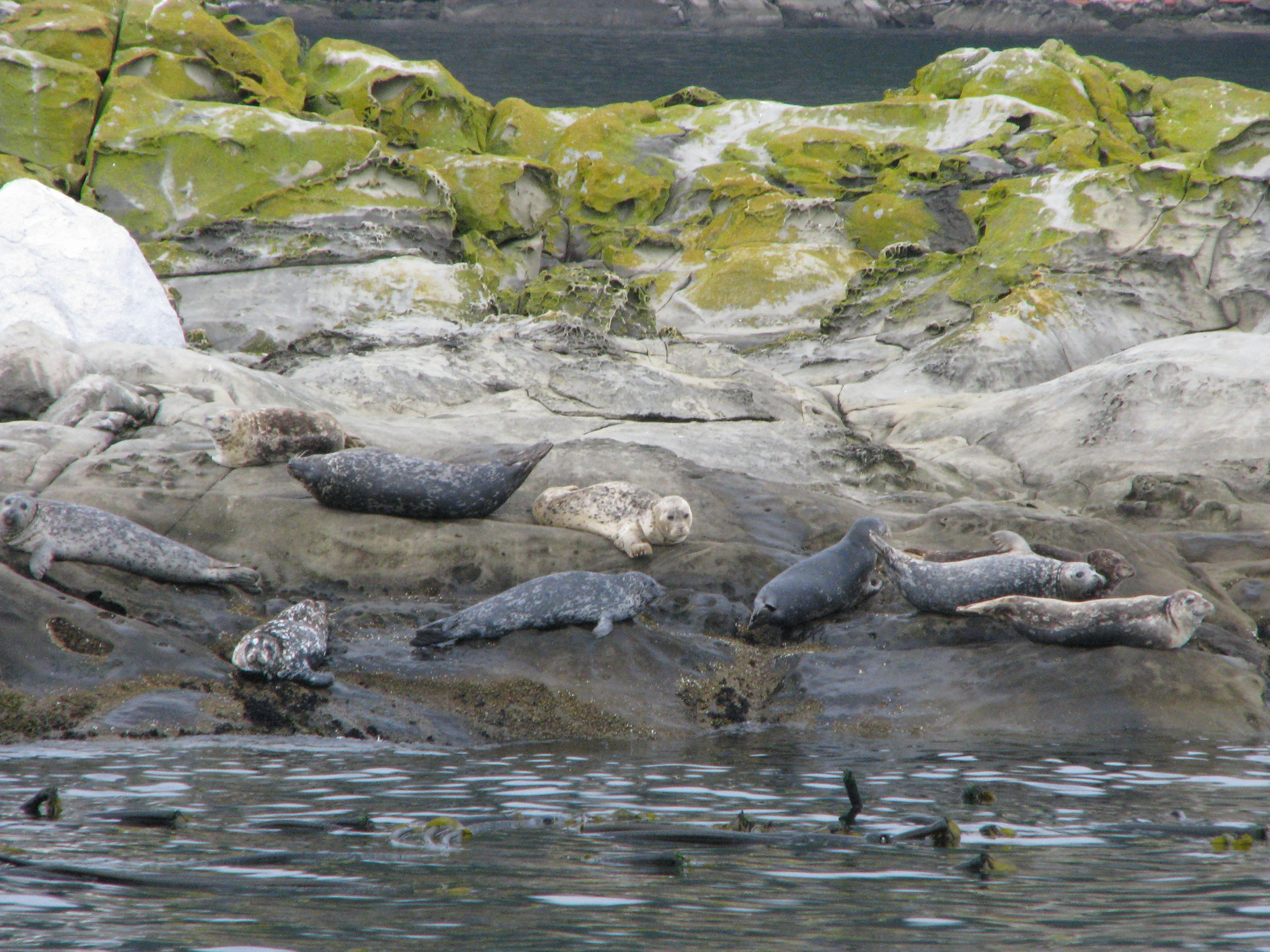Harbor Porpoise Phocoena phocoena are in Birch Bay, Bellingham Bay, Whitehorn region and all coastal areas here in Whatcom County. They prefer shallow, cold coastal waters. They do not have an especially playful attitude and hardly ever leap above the water. How do you look for them? Look for a glint of sunlight on the water and a quick small grey porpoise breaking the surface of the water. Their dorsal fins are not very big. An adult porpoise is about 5 to 6 feet in length and about 150 to 175 lbs. Also look for flocks of birds feeding They feed on the same small fish, so while the birds are feeding at the surface of the water, the porpoise are feeding beneath. They travel in small groups of two to five members. The females have one calf every one to two years. They are polygynandrous, with two or more males mating with a female. Right now, is when the calves are being born. Look for a small porpoise staying close to its mother. When the calf is first born, they have “fetal folds”. These will last for a few hours to a couple of days after the calf is born. The calves will nurse for 8 to 12 months, and start eating solid food at around five months of age.
Sometimes, a porpoise may become “stranded” in shallow water. The Whitehorn region here is an area where we often get reports of harbor porpoise out on the mud flats. They have usually come in to the shallow water and become “stuck” with the tide quickly going out. Please don’t attempt to put a porpoise back in the water. Sometimes with the incoming tide, the porpoise will be able to swim away. Call us at 360 966 8845.

